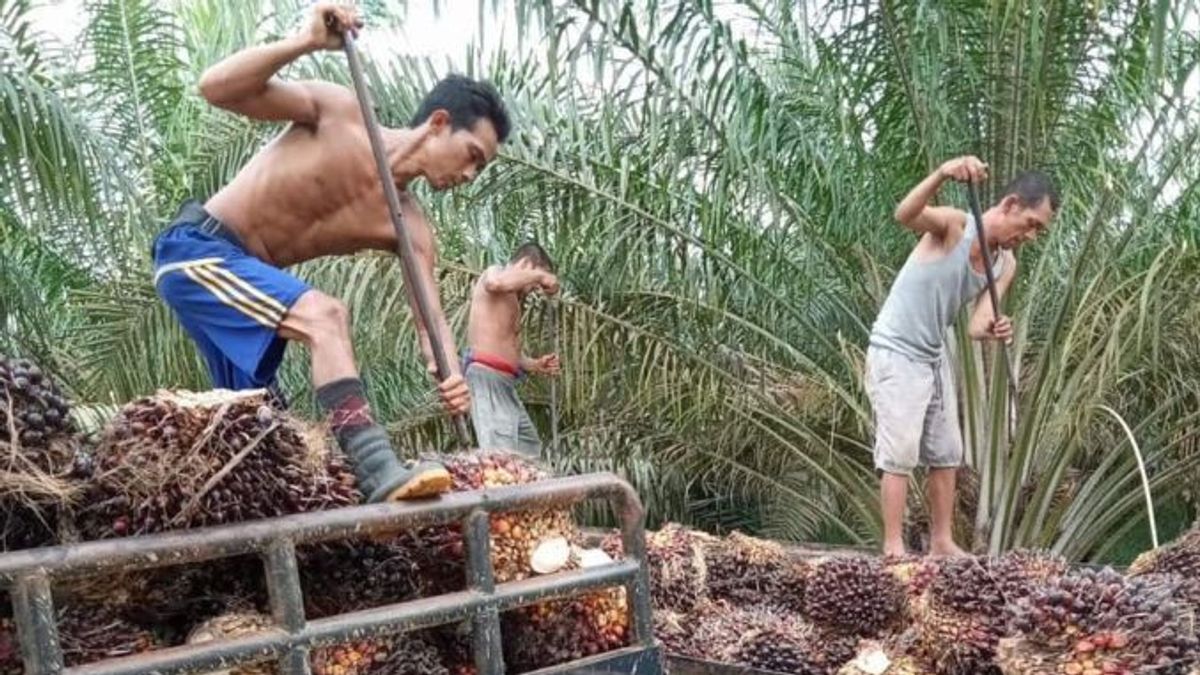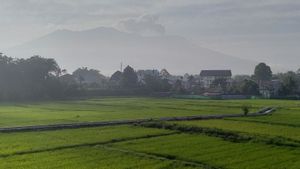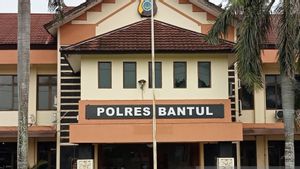JAKARTA - Member of Commission VII DPR RI, Mulyanto, reminded that the government's policy to prohibit the export of CPO and its derivatives must be followed by a policy of purchasing fresh fruit bunches (FFB) of palm oil by the government through State-Owned Enterprises (BUMN) and related institutions.
Mulyanto emphasized that these efforts need to be made so that the harvests of smallholder oil palm farmers are channeled to industries in need, so that the selling price of FFB is maintained.
In his statement, Mulyanto said the government must make integrated policies, related to each other so that no party is harmed by the implementation of a policy.
“Regarding the purchase of oil palm FFB by the government, this is very possible. Because the government is currently intensively producing biofuel. So there is no reason for the government not to buy people's palm oil harvests. They can no longer bear the burden of falling FFB prices since President Jokowi announced the ban on exports of CPO and its derivatives," said Mulyanto in a statement to the media, Wednesday 18 May.
Mulyanto does not deny that the government is facing a dilemma.
However, he asked the government not to submit to the cooking oil mafia (migor) and rogue businessmen and then submit to revoking the CPO export ban policy.
"The government should not be fickle with the CPO export ban policy. The price of bulk migration is still perched at Rp. 19,100 per kg, far above the Highest Retail Price (HET) of Rp. 15,500 per kg. smallholder oil palm farmers by providing incentives. Moreover, the pandemic is not over yet and their purchasing power is still weak, "said Mulyanto.
According to him, an important incentive to relieve smallholder oil palm farmers is to absorb FFB products at reasonable prices. For example, by purchasing and processing mandatory biofuel from smallholder palm oil and fertilizer incentives.
“In addition, the state-owned plantation companies and their subsidiaries that process plantation products must be encouraged by the government to increase the absorption of smallholder FFB products. This step will be enough to help smallholder oil palm farmers during the CPO export ban," he concluded.
Just to note, from data from the Ministry of Agriculture, in 2019 the area of smallholder palm oil was 5.9 million hectares or about 41 percent of the total national oil palm area.
As for BUMN land, only 4 percent, the remaining 55 percent is oil palm land from big private companies. With the policy of banning the export of CPO and its derivatives, the proportion of smallholder palm oil affected is quite large.
Not long after President Jokowi's policy of banning the export of CPO and all its derivatives was announced on April 22, the price of oil palm FFB from smallholders immediately plummeted.
The price of FFB for farmers today is only Rp. 1,200 per kg.
Especially for FFB from non-partnership farmers. This is far from before where smallholders' palm fruit was valued at IDR 3,600 to IDR 4,000 per kg.
The English, Chinese, Japanese, Arabic, and French versions are automatically generated by the AI. So there may still be inaccuracies in translating, please always see Indonesian as our main language. (system supported by DigitalSiber.id)












